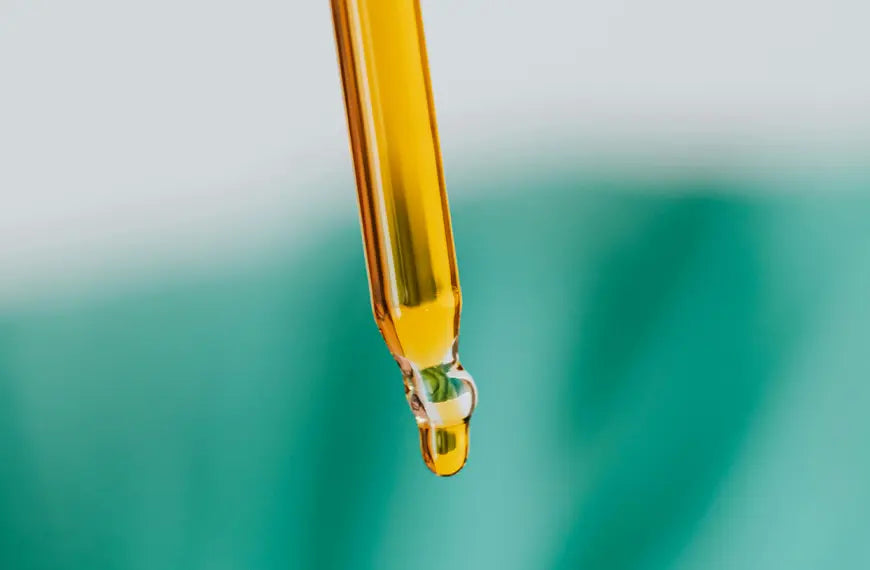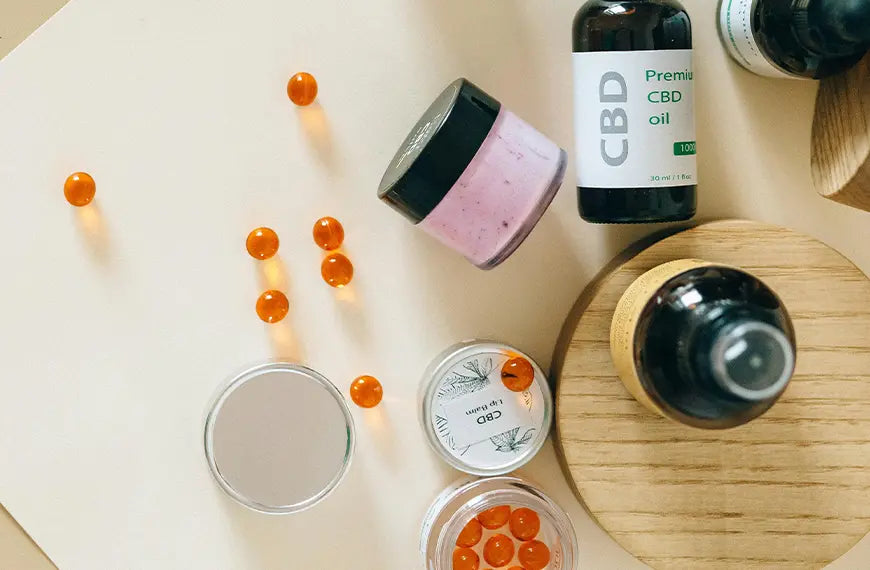What’s the Difference Between CBD Oil and Hemp Seed Oil?

With the rise of natural wellness products, CBD oil and hemp seed oil have gained immense popularity. While these two products come from the same plant—Cannabis sativa—they are vastly different in terms of production, composition, and use. Understanding the distinction between CBD oil and hemp seed oil is crucial for making informed choices when selecting the right product for your needs. This FAQ article breaks down the differences, benefits, and uses of CBD oil and hemp seed oil to help clear up common misconceptions.
What Is CBD Oil?
CBD oil is made by extracting cannabidiol (CBD), a non-psychoactive compound, from the flowers, leaves, and stalks of the hemp plant. CBD is renowned for its potential therapeutic benefits, which include reducing anxiety, relieving pain, and promoting better sleep.
How Is CBD Oil Made?
CBD oil is typically extracted through processes such as CO2 extraction or ethanol extraction, which preserve the cannabinoid content of the plant. Once the CBD is extracted, it is diluted with a carrier oil, such as coconut oil or hemp seed oil, to create the final product.
Key Components of CBD Oil:
- Cannabinoids: Primarily CBD, with trace amounts of other cannabinoids like CBG or THC (less than 0.2% in the UK).
- Terpenes: Aromatic compounds that may enhance CBD’s effects through the entourage effect.
- No psychoactive properties: Unlike THC, CBD does not cause a “high.”
What Is Hemp Seed Oil?
Hemp seed oil is extracted from the seeds of the hemp plant. Unlike CBD oil, hemp seed oil contains no cannabinoids, including CBD or THC. Instead, it is valued for its nutritional profile and is commonly used in cooking, skincare, and as a dietary supplement.
How Is Hemp Seed Oil Made?
Hemp seed oil is produced by cold-pressing hemp seeds, a process similar to making olive oil. This method preserves the natural nutrients found in the seeds.
Key Components of Hemp Seed Oil:
- Omega fatty acids: Rich in omega-3 and omega-6 fatty acids, essential for heart and skin health.
- Vitamins and minerals: Includes vitamin E, magnesium, and zinc.
- No cannabinoids: Hemp seed oil does not contain CBD or THC.
What Are the Key Differences Between CBD Oil and Hemp Seed Oil?
While both oils originate from the hemp plant, their production, composition, and uses are distinct:
| Aspect | CBD Oil | Hemp Seed Oil |
| Source | Leaves, flowers, and stalks of hemp | Seeds of the hemp plant |
| Extraction Method | CO2 or ethanol extraction | Cold-pressed |
| Cannabinoid Content | High in CBD, may contain minor cannabinoids and terpenes | None |
| Primary Use | Therapeutic (anxiety, pain relief) | Nutritional (cooking, skincare) |
| Psychoactive? | No | No |
Benefits of CBD Oil
CBD oil is widely researched for its potential health benefits, including:
Anxiety and Stress Relief: Studies suggest that CBD interacts with serotonin receptors to help alleviate anxiety and stress.
- Pain Management: CBD has anti-inflammatory properties, which may aid in managing chronic pain and arthritis.
- Improved Sleep: Many users report better sleep quality after using CBD oil, likely due to its calming effects.
-
Epilepsy Treatment: FDA-approved CBD-based medications like Epidiolex are used to treat certain forms of epilepsy.
Benefits of Hemp Seed Oil
Hemp seed oil is celebrated for its nutritional and cosmetic properties:
- Skin Health: Rich in fatty acids, hemp seed oil hydrates and nourishes the skin, reducing dryness and irritation.
- Heart Health: Omega-3 and omega-6 fatty acids promote cardiovascular health by improving cholesterol levels.
- Dietary Supplement: With its high vitamin E content, hemp seed oil is a valuable addition to a balanced diet.
How to Choose Between CBD Oil and Hemp Seed Oil
Choosing between CBD oil and hemp seed oil depends on your needs:
- For Therapeutic Benefits: If you’re seeking relief from anxiety, pain, or sleep disturbances, opt for CBD oil. Ensure it is third-party lab-tested for quality and compliance.
- For Nutritional or Skincare Use: If your goal is to boost your diet or skincare routine, hemp seed oil is the better choice due to its rich nutritional profile.
Reading Product Labels:
It’s essential to carefully read labels to ensure you’re purchasing the correct product:
Look for terms like “CBD,” “cannabidiol,” or “full-spectrum” to identify CBD oil.
For hemp seed oil, labels will usually indicate “cold-pressed hemp seed oil” with no mention of cannabinoids.
Common Misconceptions About CBD Oil and Hemp Seed Oil
They’re the Same Product: Many people mistakenly believe CBD oil and hemp seed oil are interchangeable. While both come from the hemp plant, they serve entirely different purposes.
Hemp Seed Oil Contains CBD: Hemp seed oil does not contain CBD or other cannabinoids, despite being derived from the hemp plant.
CBD Oil Can Get You High: CBD oil contains only trace amounts of THC (less than 0.2% in the UK), which are not enough to produce psychoactive effects.
Conclusion: Understanding the Difference
While CBD oil and hemp seed oil share a common origin in the hemp plant, their uses, benefits, and compositions are unique. CBD oil is ideal for therapeutic purposes, targeting issues like anxiety, pain, and sleep, while hemp seed oil shines as a nutritional and skincare product. By understanding their differences, you can choose the product that best aligns with your needs.
Whether you’re seeking relief from stress or simply looking to enhance your wellness routine, knowing what sets these two products apart empowers you to make informed decisions about your health and well-being.



